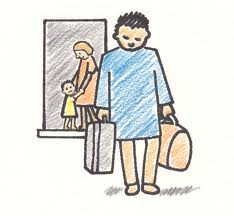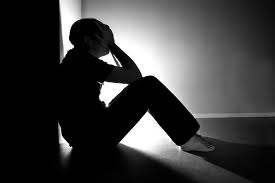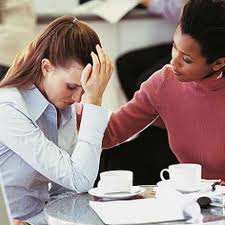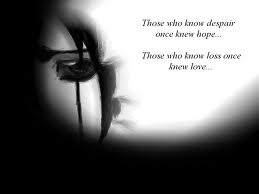G – Grief
Grief comes to us all. We all experience loss, whether it be the death of a loved one; the loss a family pet; a serious accident or the onset of ill-health; losing a friendship or a job that we love or suffering the breakdown of an intimate relation ship.
ship.
How you deal with grief will depend very much upon:
(1) Your life experiences so far since, ultimately our perceptions, attitudes and beliefs towards every experience in life is the result of the perceptions, attitudes and beliefs that we already hold due to the experiences we have already had!
(2) The value that you held for that which has been lost.
(3) The degree in which you have developed personal characteristics such as resilience, optimism, persistence and determination.
(4) Your spiritual beliefs. If, for example, your belief system tells you that challenge makes you stronger, or that we learn through sadness, you will be better equipped to deal with grief in a more positive way.
(5) The amount of support you are offered and ask for.
Regardless of how we deal with grief, we find ourselves dealing with a pattern of human emotions and these are known as the Cycle of Grief. Whilst the cycle is the same for most of us, we will all travel round it differently, due to the reasons given above.
Shock
When we experience an important loss, our first reaction is usually one of shock and complete disbelief. Shock affects people in different ways: everything can seem unreal; people can feel numb, withdrawn, detached; some people feel completely disorientated and don’t know what to do with themselves. For some it is a nightmare they cannot escape. Many people quickly experience complex and confused feelings – anger, guilt, despair, emptiness, helplessness and hopelessness.
Denial
When the shock begins to wear off, many people go through a stage of denial during which they cannot accept the reality of the loss. This often involves what counsellors call searching behaviour, an attempt at some level to try to deny that the loss has occurred. In the case of bereavement, people often find themselves thinking they have seen or heard the dead person and many people talk aloud to the person they have lost.
Anger And Guilt
It is common to experience anger, sometimes guilt and often both. Many people find themselves asking: “Why has this happened”? “Why me”? This is particularly so if the loss was sudden, unexpected or involved a tragic accident, Counsellors say that it is common to wish to find blame, either in ourselves, in others, or even with the person who has died, and this can lead to powerful feelings of anger and guilt.
Despair And Depression
In the first few weeks the whole situ ation may seem unbearable and in the months that follow, many people feel there is little purpose in life and nothing of interest in the outside world. People sometimes begin to question their own sanity and think that you are going mad. This is a common experience.
ation may seem unbearable and in the months that follow, many people feel there is little purpose in life and nothing of interest in the outside world. People sometimes begin to question their own sanity and think that you are going mad. This is a common experience.
Acceptance
Eventually people pass through the period of depression and begin to accept the loss. This usually happens with the passage of time and, as the pain eases, we are able to think about our loss and recall the past without feelings of devastation. This can take up to a year or longer. Eventually, however people start thinking of beginning their life again, maybe renewing old interests and taking up new pursuits. Many people take up a hobby as a therapy. It is important to remember that the past is always a part of us and is not affected by enjoying the present, or planning for the future.
Finding Good Listeners
There is no automatic or quick answer to grief and it helps to express the feelings that well up inside us. Many people are afraid to talk to us when we experience a loss because they feel they will upset us. Most people do not realise that we want and need to talk about our loss. It is important to find good listeners. In the case of bereavement, there are organisations that can offer help and support during this vulnerable time. Please see below for links to useful organisations who provide professional help and counselling for the bereaved.
afraid to talk to us when we experience a loss because they feel they will upset us. Most people do not realise that we want and need to talk about our loss. It is important to find good listeners. In the case of bereavement, there are organisations that can offer help and support during this vulnerable time. Please see below for links to useful organisations who provide professional help and counselling for the bereaved.
Remember, if you are grieving, whatever the reason:
(1) Give yourself time and be kind to yourself.
(2) Allow yourself to express your grief.
(3) Understand that acceptance will come over time.

Useful Organisations
Cruse: http://www.crusebereavementcare.org.uk
Much Loved: http://www.muchloved.com/gateway/grief-support-organisations.htm
Winstons Wish – Have information and links specifically for children suffering from or anticipating bereavement: http://www.winstonswish.org.uk





